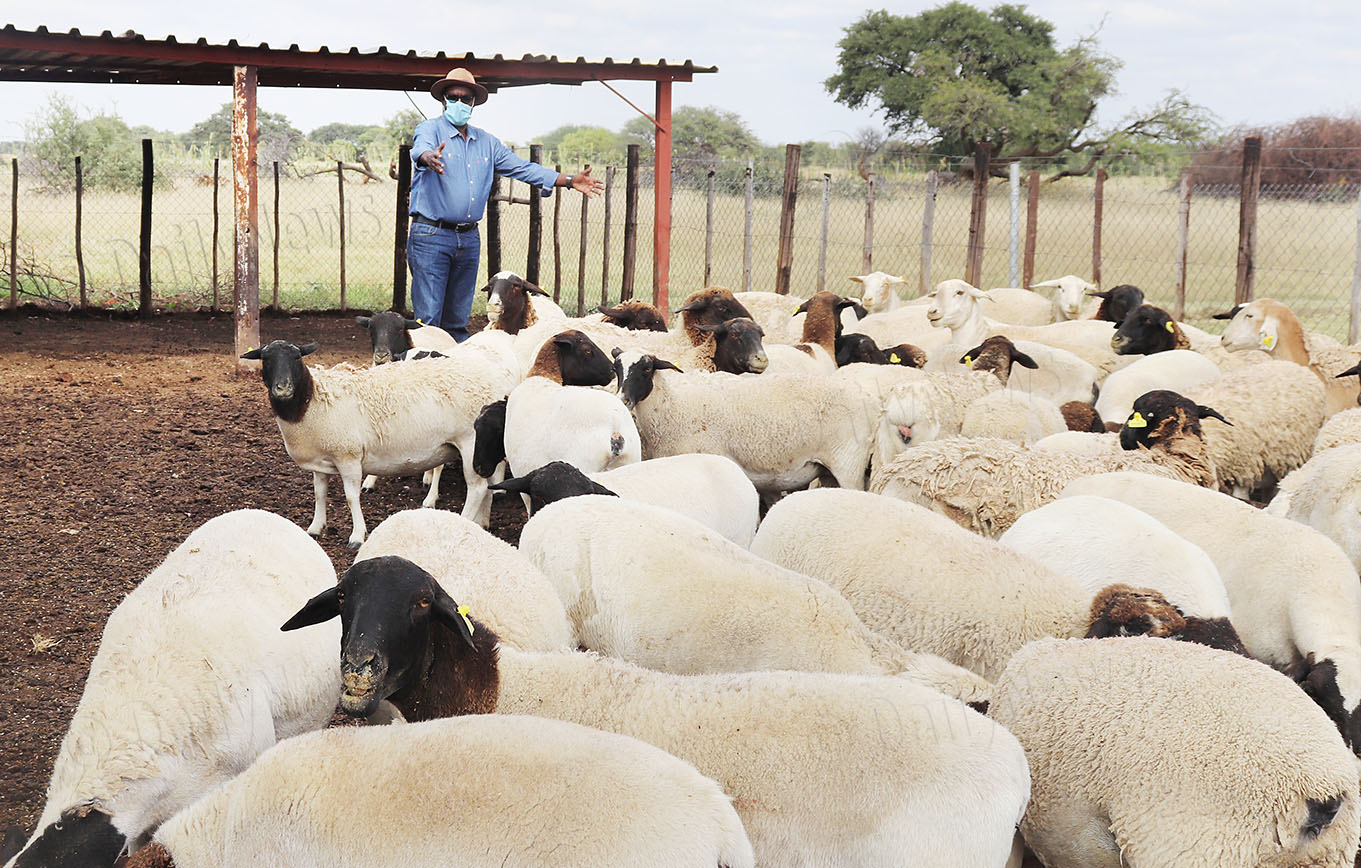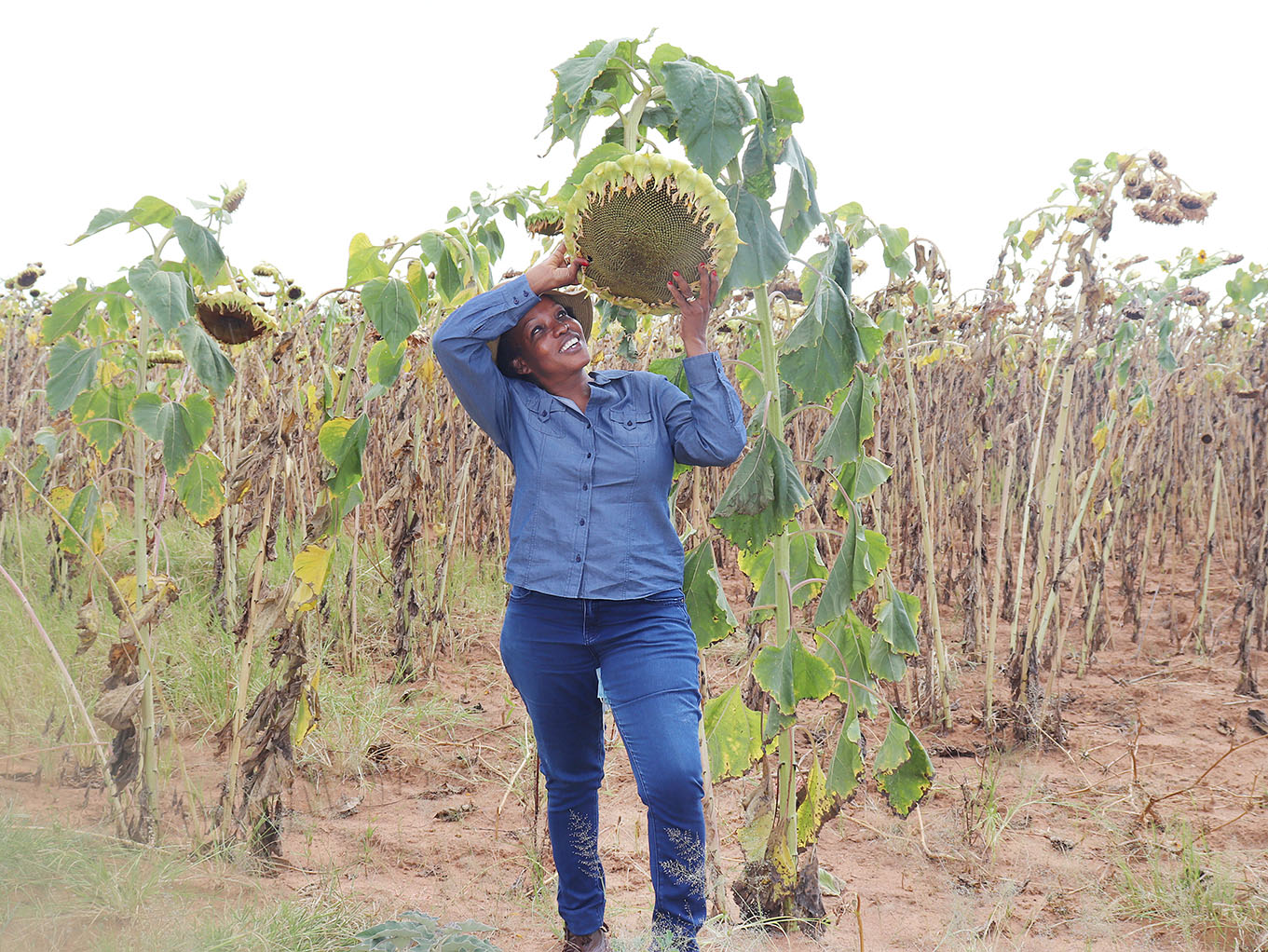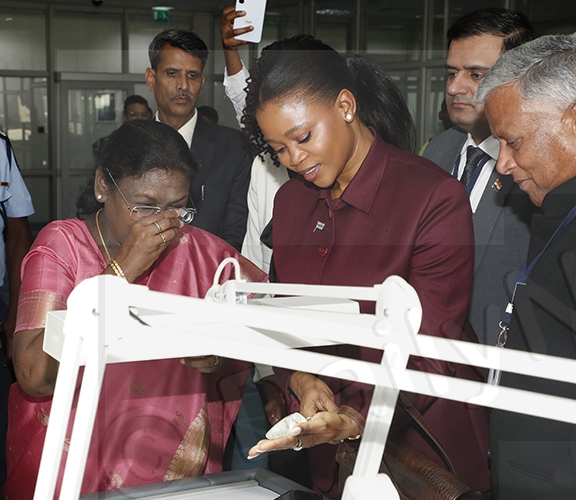Mogul urges Batswana to sieze opportunities
21 Apr 2021
Businessman and real estate mogul, Mr Willy Kathurima calls upon Batswana to consider farming as an exit from mainstream employment.
Given the myriad of challenges posed by the pandemic with a real threat to the very survival of humanity all is not lost as it has also presented opportunities for people to engage in farming activities as an alternative to a source of livelihood.
The Kenyan native, now a naturalised Motswana, owns several businesses ranging from real estate to hospitality and farming across the country.
The 60-year-old is also a big time farmer who continues to acquire acres of land to expand his farming enterprises.
He started farming with a few cattle at his first cattle post in Khudumelajwe.
He grew up in an active farming environment in Kenya where village production experience exposed him to domestic farming as well as financial reward.
When he came to Botswana in 1989 he found an active farming environment plus availability of land. He found that the system was rewarding although they did not farm for profit. This catapulted him to start renting and buying little pockets of land.
In an interview at one of his many farms located near Metlojane in the Borolong Farms area on Saturday, the land economist said acquiring land and developing it was important because land was an infinite resource.
Therefore, acquiring a farm and introducing integrated farming was of utmost importance because farming activities interdepended on one another thereby creating multiplicity of value. Mr Kathurima insists that the land issue in Botswana was not an excuse because most Batswana have access to land either owned by their parents or grandparents as well as from relatives. Therefore, he believes that the pandemic presents an opportunity for all not to hide but to produce.
“This is a time to apply yourself,” he said, adding that it was important that people stopped spending time on activities that brought temporary excitement.
Having multiple activities going on at the farm he said it enabled farmers to literally produce from the ground to the mouth. At his farms he produces maize, sunflower and lab lab on a massive scale to sell to Botswana Marketing Board. The rest form the base for feed he produces for his small stock and cattle in his other farms in Sekoma and Khudumelajwe. This, he said, helped him cut off the middle man.
He said farmers should shy away from the mentality of doing one activity in the farm.
With cattle farming proving to be a challenge in the country given the current climatic conditions and lack of good grazing pastures, Mr Kathurima maintains that cattle farming could be profitable if done right. He explained that a lot of what was done in farming was free.
He cited that the grass grew freely and that cattle fed on natural vegetation and that farmers just supplemented. The only thing that was contributing to one’s farming production he said was infrastructure, fences, kraals, water reticulation and that the rest was natural.
Employing the right people he mentioned was also key. He said it was important to employ the right herdman who could understand basic things because he was the driver of the farm.
“If you take the culture of moraka to a farm you are finished. It will remain moraka,” he emphasised, urging people to stop practising farming the conventional way.
He also explained that for one to reach European Union standards one had to be disciplined to understand that it was no longer casual visits to the farm. “But if you do it right cattle farming is profitable. If your objective is to make money and you have passion, you will make the money, but if you want to show off, your farming enterprise will suffer,” he said.
He said 80 per cent of the farming business was natural. Mr Kathurima keeps different breeds at his farm at Nakatsakgomo in Sekoma. He has pedigree breeds ranging from Simmental, Charolaise, Brahman and Sussex among others. He also keeps black head dorper sheep and goats in his other farms. He sells his livestock to BMC and to individual farmers. He also has a horticultural farm at Ramaphatle where he grows different cash crops for the retail market.
His business acumen has earned him commercial farmer status which significantly contributes directly in the food production chain in the country.
Mr Kathurima is also a philanthropist who never stops extending his helping hand in communities his businesses are involved in.
When he went to Ramaphatle looking for land to do something near Gaborone, it was during the time when people of Ramaphate’s houses were destroyed because they were considered illegal squatters.
He explained that people were homeless and he extended a helping hand. He housed and fed people and also adopted Ramaphatle Primary School.
“Houses were built, homes were reconstructed, school fees were paid, milk was given, computers were bought not because we have money, but because the one we believe in is stronger than we are,” he said. Today his horticultural farm in Ramaphatle feeds school children and the school gets supplies from him. He has also extended his charitable deeds to Logagane and Tswagare primary schools in the Borolong area.
He would like to be remembered for impacting positively on other people’s lives.
Mr Kathurima said he did not have any plans to go back to Kenya because he believed home was where God has placed you at any time.
“Where I am today I am fulfilling the mandate that God has given me and I am happy,” he said.
However, he stated that he could do what he did here in Kenya because of the Internet. With the advancement of technology, he said there were no physical boundaries.
He advised farmers to learn from other farmers whether big or small and to be open minded.
Mr Kathurima moved from Kenya in 1984 to go and work in Zambia for three years in several companies. He met his wife Ms Doreen Kathurima in Zambia and they moved to Botswana in 1989 because of opportunities.
He worked for Botswana Housing Corporation before he set up his property business Willy Kathurima Associates. The family has over 30 years in Botswana and they have three children, two boys and a girl. ENDS
Source : BOPA
Author : Lindi Morwaeng
Location : MOLEPOLOLE
Event : Interview
Date : 21 Apr 2021







